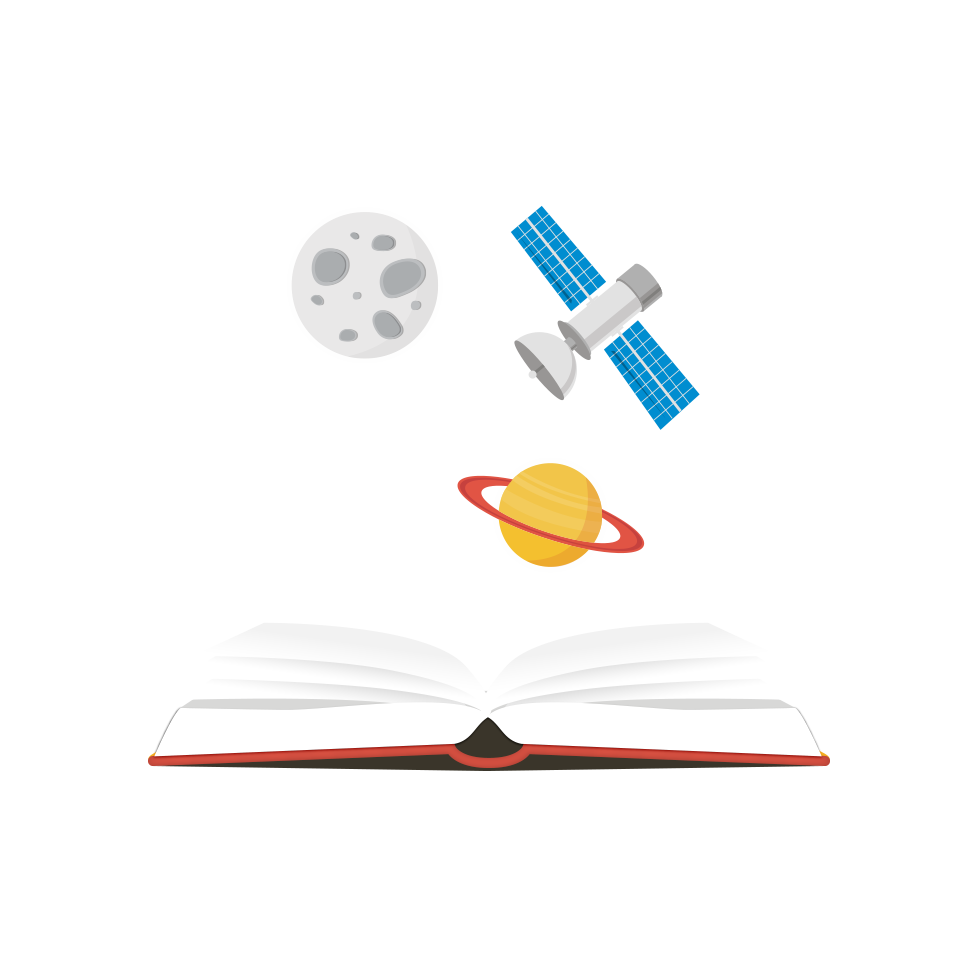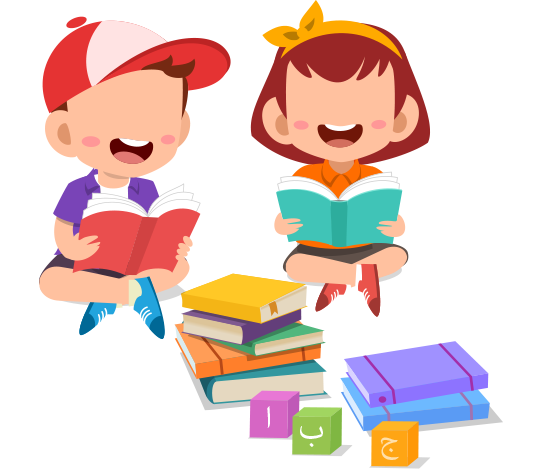
Children
Explore our Arabic Course and Quran Learning programs designed specifically for children between the ages of 8 and 15.
We have two programs
Arabic Language Program and Learning Quran Program
PROGRAM 1
Arabic language
Encouraging children to enjoy lessons, without being forced to do so
During the Arabic language sessions we use adapted books, including reading, writing and exercises for each lesson. We have also included videos related to the lessons studied, in which the child finds entertainment and learns in a way that does not make them feel bored. So you'll see that your child will love studying. In this way, Daralfasaha will have achieved an important objective: that of getting children to enjoy lessons, without being forced to do so.


PROGRAM 2
The Quran
Always aiming for excellence
The Quran lessons are given by professional teachers who have extensive experience of child-friendly memorisation methods. They also have a great deal of patience when reciting with children, and they have all the authorisations (idjaza) in the Koran to ensure that the child receives it correctly and with the correct pronunciation. We also provide a video of the suras learnt in class in each child's account.
WHAT OUR STUDENTS HAVE TO SAY
They took the plunge and they haven't regretted it .
BOUYARDEN
cela fait maintenant un mois que je me suis inscrite moi et mes quatres enfants, et en moin d 'un mois je sais lire en prenant 4 heures de cours par semaine, puis j'ai deja appris un hizb, bon je ne comprend pas encore la totalité mais sa viendra. j 'ai essayer jusqu'à aujourdhui plusieurs site afin d 'apprendre a lire et à ecrire pour moi ce site reste le meilleur.
Hassan Doualeh
Je suis inscrit au centre bientôt un an et je suis très satisfait de mon avancement. Malgré une fréquentation minimale (une fois par semaine) mon apprentissage tant en langue arabe que le Coran est rapide. Mon professeur est quelqu’un de passionné par l’enseignement et sa patience est extraordinaire. Je ne voudrais pas passé sous silence la disponibilité et la courtoisie de l’équipe administrative qui répond toujours à mes questions même des fois à des heures tardives pour eux. Je recommande le centre à quiconque veut apprendre la langue arabe et le Coran.
Yssouf aboubacar
Salam alaykoum! Ça fait presque 3 mois que j étudie avec dar al fasaha alhamdoulillah. J ai appris énormément en si peu de temps. L avantage c est qu on a un professeur personnel et de ce fait chacun peut apprendre à son rythme et à son niveau. Alors chers frères et sœurs qui souhaitent apprendre votre religion n'hésitez pas à vous inscrire ! C est comme si on avait le professeur en face de nous car quand il est écrit on voit en même temps. Le directeur et les enseignants sont tous des frères salafis alhamdoulillah et ils sont très réactifs à nos demandes. Qu ALLAH Vous Facilite !
Oum adam
Mon fils de 12 ans lit le coran elhamdoulilah Allahoumaberek grâce à vos cours .cela fait presque 6 ans qu’il suit vos cours . Son professeur est très patient à l écoute et toujours disponible . Quand on vit en France ces cours sont une véritable bénédiction . QuAllah vous facilite et vous récompense .
The Arabic language programme
The Arabic language programme is divided into three stages
Step 1 Learning to read and write
Level 1
Learning the letter
The objective is to memorize and master the Arabic alphabet. Demystify the letters that resemble each other by written and oral exercises. The child will master pronunciation as well as conjugation of letters so they are equipped to build upon their new found knowledge in the levels and classes to come.
Level 2
Learn voyels (fatha) Through letters and words
Targets:
- Learning vowels (fatha)
- master the differentiation of similar letters with the fatha
- ability to write all letters in conjugation,
- distinction between letters which attach to others from those which do not.
- ability to read words and to write them in dictation so that the child is able to read a sentence composed of 3 words, proficiently.
Level 3
Learning the rest of the vowels (kasra, damma, sukoon, tanween)
Objectifs:
- Master all the vowels as well as sukoon and tanween.
- To be able to read words and sentences made up of different vowels (fatha, kasra, damma) as well as sukoon.
- To be able to write words and sentences which are dictated to them.
Level 4
Extensible Letters (mudood)
At this point, we have introduced learning mudood with the Uthmani script (as in the Quran).
Objectifs:
- The child should be able to distinguish between a letter, a vowel and an extended letter.
- He will be able to read words from the Quran that include lengthening.
- He will be able to read the Quranic verses – (shadda not included) – without stammering.
- Thus, the father begins to feel the happiness he has been waiting for: seeing his child reciting the verses of the Qur’an.
Level 5
The Shadda, Lunar Letters, and Solar Letters, hamza of abridgement and of divide.
Objectifs:
- They learn to connect the words in reading, they will know the letters written and spoken, those written but not spoken, and those which are pronounced at times and at others, not pronounced. مثل: اعبدوا ربكم، قاضي المدينة، تَجَنَّبوا الشركَ
- They will master hamza of abridgment and divide both orally and written.
- They will learn the letters having a shadda as well as their reading in the words as in the sentences.
- They will learn the solar and lunar letters and learn to easily read the words which are composed of them.
- May he be able to read the entire Quran with ease.
By completing this level, the child will therefore have completed the first step. He will be able to read all words and phrases in Arabic.
Here we briefly mention the most important benefits and benefits the child will get.
- The ability to read the Quran from the mushaf alone.
- The ability to revise the Quran alone, which undoubtedly relieves a heavy burden on the one responsible for monitoring the child’s revision.
- If the child is able to read the Quran on their own, they can then memorize it on their own from the mushaf, after reviewing the parts he has to learn with his teacher.
- The ability to read the prophet’s hadiths – صلّى الله عليه وسلّم – which will make it easier for your child to memorize some of them.
- Your child will be able to read Moutun such as little Moutun intended for children in the belief…
Setp 2 Express themselves correctly and exchange dialogues in a variety of fields
Level 1
It is the level of learning a common vocabulary that surrounds the child during his everyday life such as school, the park, the mosque or the house.
Objectifs:
- the goal of this level is for the child to learn the name, in Arabic, of the things around him, in the singular and in the plural, so that he is ready to use them in sentences during the next level.
Level 2
This is the level of sentence constructions and the use of learned vocabulary, in complete sentences. During this level, the child will express himself correctly with this vocabulary. He will also express what he does or what he wants and that in simple and complete sentences.
Objectifs:
- The child must be able to set up complete sentences and must be able to use the vocabulary, learned previously, when he expresses himself. He must also be able to express himself on his daily actions or on what he wishes using complete sentences.
Level 3
This level includes 2 books
- Book of expression: exchange of dialogues, written expressions, writings of text on oneself as well as its daily tasks, oral expressions.
- Books of basic rules: study of basic grammar rules such as demonstrative pronouns, certain personal pronouns as well as the singular and plural.
Objectifs:
- the child must be able to express himself on what he wishes and must be able to dialogue correctly with others. He must also be able to write properly, what he wants, in a text. With regard to the basic grammar rules studied, he must be able to master them and use them when speaking and writing.
Level 4
This level includes 2 books
- Ldrunk on expression: the child learns new vocabulary that is adapted to him, dialogue, text writing and oral expression.
- Book of basic rules: he learns the basic grammar rules in the Arabic language, the sequence of demonstrative and personal pronouns as well as their application through exercises, prepositions.
Objectifs:
- One of the objectives of this level is for the student to move to an advanced stage in expression and thus study vocabulary, sentences and texts in different fields. He must also be able to synthesize his words and expressions using the grammar rules studied in order to combine both the theoretical study of the rules and their implementation.
Level 5
- Expression: it contains new vocabulary, of a higher level, dialogues as well as expression. It differs from the adult level only in what suits the child.
- The basic rules: he studies the basic rules of the Arabic language such as the different types of sentences, its components and the relative pronouns so that the child is impregnated with these rules that he will have to use during the 3rd step.
At the end of this step
The child must have reached a level that will allow him to study stage 3, which corresponds to an advanced course in the Arabic language, both in terms of expression and grammar. It includes Quran and Hadith lessons so that the child learns the meaning of Quranic and Sunnah vocabulary.
Step 3 Reinforce and develop what the child has studied in the previous stage
Methodology
It has five levels, at each level a book is taught, each book includes the following elements:
- Scalable themes and texts
- Direct exercises on the text, short questions and answers.
- Oral exercises requiring lengthy answers and discussions.
- Written exercises that need to be written, summarized, and rewritten
- Grammar lessons covering grammatical structures, their rules, and their applications through the text
- Exercises in which the combination of oral expression and syntax will be used to adjust one’s speech
Goals
- This stage aims to reinforce and develop what the child has studied in the previous lessons in the four language skills: listening, speaking, writing and reading, with an emphasis on oral development in order to communicate with others.
- Familiarize the child with the Islamic culture, appropriate for their age. They will learn vital information about Islam and the learning of the vocabulary of the Quran and the Sunnah.
- Give the student the opportunity to understand the basic grammar rules with exercises analyzing complex grammatical structures, with training to control words and expressions.
Benefits
At the end of this stage, the child will be able to:
- Ask questions, discuss, and answer questions with complete answers.
- Summarize a text verbally after listening and reading it.
- Talk for five to ten minutes on any topic studied.
- Read moderately long articles and stories aloud and silently with understanding so that he can discern meaning and context
- Put the main ideas and points of the text and can also reiterate the text orally and written.
- Adjust his words in the sentence and organize correctly within the sentence taking into account grammatical structures such as adjective, prepositions etc..
- To build sentences and grammatically correct structures and have the ability to implement them in conversation.
- Find synonyms, antonyms, singulars, plurals, and distinguish the different uses of the word.
The Quran programme
The Quran program is divided into three stages

Quran lessons are taught by professional teachers who have extensive experience in child-friendly memorization methods. They are generously patience with children and their tutelage. They all have certifications (ijaza) in the Quran to ensure that the child receives correct instruction. The Quran lessons are also supplemented with videos of the Surahs learned in class to make the lessons more engaging for the children.
Firstly: Children who do not read the Koran
They will learn how to recite the verses with their instructor in class. The child can visit our site for revision of Surahs at home. We make available in each child’s account, supplemental videos of the suras learned in class. Simply let your child listen and repeat the reading of the instructor and allow them to recite after him. Half of the lessons will be devoted to revision and the other half to the memorizing of the new verses.
Secondly: Children who read the Koran
The instructor will read verses with them and correct them. He will be tested for intonation, nasalization, concealment, etc. and how he applies it in his reading. We will also correct the enunciation of the letters to ensure authentic reading the Quran.
Third: children with an advanced level in the Koran
The child who has memorized Juz Amma and recites it correctly, will then study with the teacher during the first 15 days of the theoretical intonation lesson by memorizing (Tuhfatul Atfal, i.e. Children’s Gift). This is a poem memorized for the purpose of gathering the rules of reading (Tajweed) with simplified explanation. The child will also have the correct recitation of new verses and the revision of old and new memorization.
Don't delay
Ready to start the adventure?
Like the other students, you too can choose Daralfasaha for your course and learn this magnificent language at your own pace, based on our programme.
